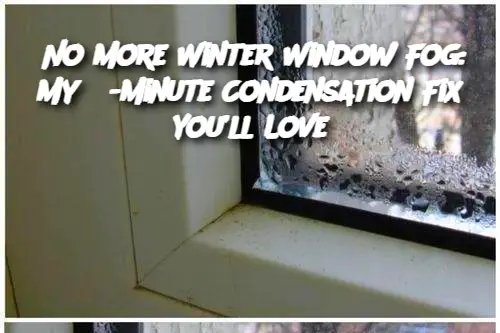ADVERTISEMENT
Essential Oil Boost: Add a few drops of lavender, lemon, or tea tree oil to the spray for a fresh scent and added anti-fungal properties.
Alcohol Swap: For a faster-drying formula, swap vinegar for rubbing alcohol. This also prevents freezing on extra-cold days.
No-Spray Option: Rub a tiny amount of shaving cream on the glass, then buff it out. It creates a temporary anti-fog layer—great for mirrors too!
FAQs:
Q: Why do plastic windows get condensation in winter?
A: Warm indoor air hits the cold surface of the window, releasing moisture as condensation. Plastic windows are often well-sealed, which can trap humidity inside the home.
Q: Can this method damage my windows or frames?
A: Not at all. Vinegar is safe for most plastic and vinyl surfaces. Just avoid over-saturating the window frames to prevent long-term moisture exposure.
Q: What if the condensation is between the window panes?
A: That usually means the window seal is broken, and unfortunately, this trick won’t fix that. It might be time to look into a repair or replacement.
Q: Does this help with mold prevention?
A: Yes! Keeping windows dry reduces the chance of mold or mildew forming along the frames or sill.
Say goodbye to soggy sills and hello to crisp, clear windows every morning. This method works, it’s fast, and it’s easy enough to do with your morning coffee in hand.
ADVERTISEMENT
